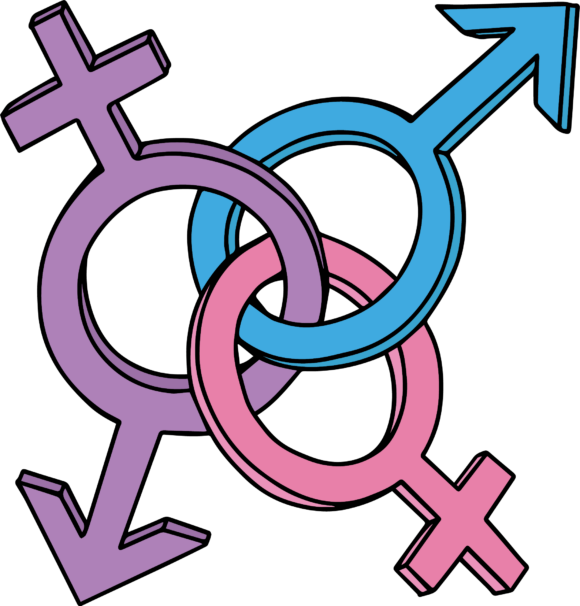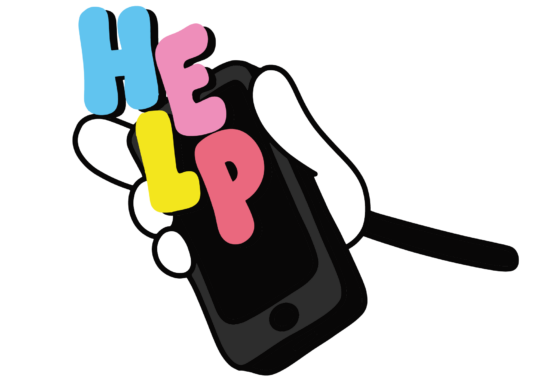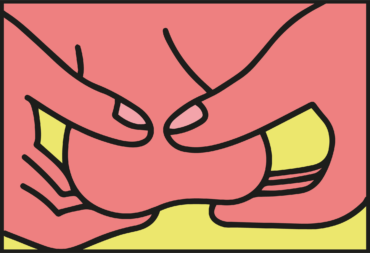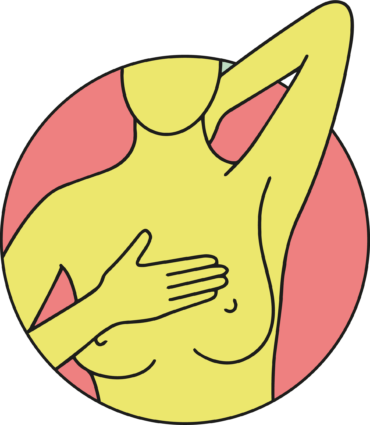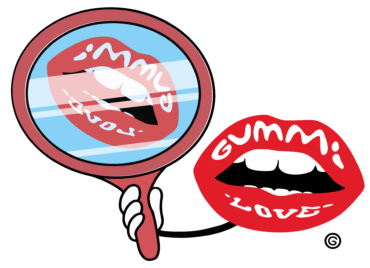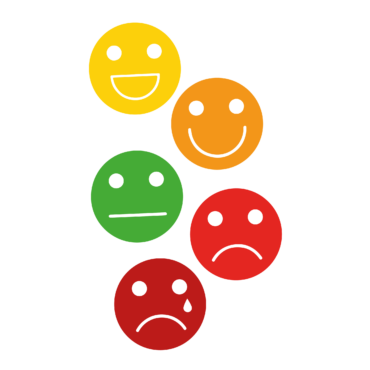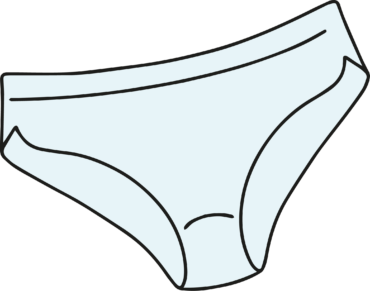1. gender can be divided into "biological sex", gender identity and "gender expression".
Broadly speaking, there are three subcategories of sex. Not all of them have to match. However, when they do, they are referred to as cisgender. Cis is Latin and means something like "remaining in the same" or "this side".
Biological gender
Biological sex is determined on the basis of physical characteristics. There are primary sexual characteristicsSexual characteristics refer to the differences between the sexes. A distinction is made between primary and secondary sexual characteristics: The primary ones serve directly for reproduction and have been present since birth. Secondary sex... such as genitalia (vulvaEntirety of the external female reproductive organs: mons veneris, external vulval lips, internal vulval lips, clitoral pearl, vestibule with the openings of the urethra and vagina., testiclesThe testicles are the male gonads in which sperm are produced. This production begins at puberty and continues until the end of life if the glands are intact. There are two testicles in the scrotum below the penis. One testicle is about the..., vaginaobsolete word for vagina., ovariesThese are technically known as "ovaries" and are the female gonads. They grow from the size of a pea at puberty to the size of a plum and weigh around 10 grams. The ovaries are attached to the peritoneum to the right and left of the uterus ..., uterusObsolete word for uterus, spermThis is the name of the fluid that emerges from the urethra of the penis during ejaculation. It consists of around 80% secretions from the vesicle glands, 15% secretions from the prostate and around 5% sperm (up to 500 million!). ducts, fallopian tubes, penisPenis is another name for the penis and, together with the scrotum, is one of the external male sex organs. The penis consists of the shaft and the glans. The glans is the most sensitive part of the male body and is covered by a foreskin, u..., clitorisThe clitoris is an erogenous organ in women that is primarily responsible for sexual arousal and orgasm. The clitoris has often played a subordinate role in history, both in medicine and in sex education. Only recently has its importance fo..., etc.) and secondary sexual characteristics such as beard growthDuring puberty, hair grows not only around the genitals or under the arms, but also on the face, i.e. above the upper lip, on the chin and on the cheeks. It is male sex hormones (androgens) that cause beard growth. Beard growth is also refe..., breastsThe two female breasts together are usually called bosoms., muscle mass, etc.
Gender identity / Gender
The English term "gender" is translated into German as "Geschlechtsidentität". It describes the social gender to which a person feels they belong. It is therefore about the role a person takes on. This varies from culture to culture.
Gender expression
In contrast to gender identity, gender expression is visible from the outside. It shows me how I can read and categorize a person. For example, skirts, high heels, lipstick and painted fingernails are read as feminineA foreign word for female. in our culture. However, this does not necessarily correspond to gender identity and/or biological sex.

2. not all people are biologically clearly male or female.
Most people believe that there are only two (biological) genders, but this is not true.
There is a not-so-small proportion of almost 2% of the human race who are not clearly male or female. This is called intersex. "Inter-" comes from Latin and means "between" or "among". It is often used to express that something is between different things or groups.
So-called gender variants can be very different. For some, even the genitalsThis is the medical term for sexual organs. This refers to both the internal and external sexual organs. The external genitalia penis, scrotum and testicles are referred to as male genitalia. The vulva is referred to as the female genitalia... are not clearly male or female. For others, it is the genes, while still others have special secondary sexual characteristics (e.g. beard growth in a person with vulva).
In the past, intersex children were operated on immediately after birth to "cover up" the fact that they were intersexIf a person cannot be clearly assigned to the norms of a female or male gender biologically. This can be the case for genetic, anatomical or hormonal reasons - genetic = due to their sex chromosomes - anatomical = due to their sex organs - .... These are unnecessary medical interventions to which those affected could not consent. This is prohibited under international law. Since 2015, it has been recommended not to perform such operations, but it is not (yet) prohibited in Switzerland and Austria. They are banned in Germany. Switzerland has already been criticized several times before the UN Human Rights Council for the lack of a ban.
3. trans* people do not identify with the gender assigned to them at birth.
If your gender identity does not match the (biological) sex assigned to you at birth, you are said to be transgender, or simply trans, or trans*. The asterisk stands for an infinite number of ways of being trans. Some clearly feel that they belong to the "other" gender. However, some do not want to be categorized in the binary order of male-female. This is often referred to as non-binaryAlso: nonbinary, non-binary, non-binary, non-binary. The concept of "non-binary" describes a gender that people can adopt if they do not (fully) identify as male or female. Instead, their gender can, for example, be both at the same time, b....
Since 2022, it has been easier to change the gender in your passport. However, trans* people are still very poorly protected against discrimination.
4. discrimination based on (biological) sex is prohibited. Discrimination based on gender identity is not (yet).
Trans* people are also often victims of discrimination and violenceViolence is when someone deliberately hurts or damages someone else. There are different types of violence, for example physical violence, verbal violence, psychological or structural violence. Violence is never okay. Violence can also be u... in Switzerland. Unfortunately, it is not explicitly forbidden in Switzerland to discriminateDiscrimination refers to the disadvantaging or exclusion of people based on certain characteristics, such as age, gender, skin color, sexual orientation, religion or disability. Discrimination can take place on many levels, such as in the w... against people on the basis of their gender identity. However, discrimination on the basis of (biological) gender is prohibited.
This means, for example, that it is legal not to rent an apartment to someone because they are transgenderTransgender is an umbrella term for all people who do not identify with the gender to which they were assigned at birth.. This is unfair and should be changed.
5. all people are intersex at the beginning
All humans are created from an egg and a sperm. We are all intersex until around the 8th week of pregnancy. Only then does a complicated combination of chromosomes, genes and hormones decide whether "female" sexual organs, i.e. clitoris, vulva, vagina, uterus, fallopian tubes, ovaries etc. or "male" ones, i.e. penis, testicles, scrotumThe scrotum is a bit like a pouch that surrounds and protects the testicles. It can also contract and collapse to ensure the optimum temperature for spermatogenesis of 34.5°C. If it is too cold, the scrotum contracts so that the testicles ..., prostateThe prostate is a gland located below the bladder in men. It produces fluid and ensures that sperm are able to fertilize and move freely. Problems and diseases of the prostate can cause urinary incontinence, prostate cancer and reduced sexu..., vesicle gland, vas deferensThe vas deferens connects the epididymis, where sperm mature, with the prostate. They are small tubes about 3 mm thick and approx. 25 cm long. They lead from the epididymis in the scrotum upwards through the inguinal canal into the abdomina... etc. are formed.
Sometimes, however, people remain in this intersex state. Intersex people are just as valuable as endosex people (i.e. clearly male or female people). There are no medical reasons to feminize or masculinize intersex children.
A very good video from Planet Wissen shows this very clearly:
6. non-binary people identify as neither male nor female
The word binary comes from Latin and means "double" or "consisting of two". Our computers, for example, work with a binary system. There are only "0" and "1" and the binary gender system only "knows" two genders; male and female.
Non-binary means denying this binary system. There are people for whom neither 0 nor 1 is right, neither male nor female. After all, there are an infinite number of digits between zero and one. The term non-binary is relatively new. The fact that people identify as neither male nor female, on the other hand, is very old and has probably always existed.
What else?
There are great Specialist centres such as the Transgender Network Switzerland (TGNS) or dubistdu or Milchjugend, which can give you very competent advice and useful tips if you have questions about your gender.
Did you know?
There is more
Intersex than red-haired people on earth.
Here are a few explanations of terms relating to sexual orientation.
Would you have known what they mean?
Test your knowledge of sex now
Take the quiz and find outOuting, outing: To out someone is to disclose a person's gender identity and/or sexual orientation to another person or group against his/her will. how much you know about sex.
Seximnetz
Questions on the topic of sex
We have received several questions on this topic. The answers from our sexperts are sure to help you too.

